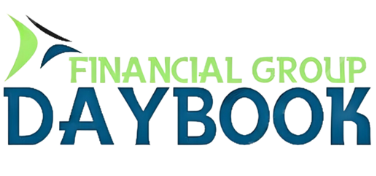For small businesses looking to thrive in today’s competitive market, having in-depth knowledge of their financial status is crucial. It not only allows businesses to function smoothly but also helps them predict potential opportunities and shortfalls, enabling them to make well-informed decisions for sustainable growth.
One key tool that can unlock these insights for your business is financial forecasting. By partnering with the Daybook Financial Group, you can leverage our expertise in insightful and accurate financial forecasting to propel your business forward.
Financial forecasting is a powerful tool that provides an estimate of future financial outcomes for a business. It plays a crucial role in budgeting and financial planning, helping businesses predict their income, expenses, and cash flow over a specific period. Effective financial forecasting can lead to better resource allocation, improved financial stability, and enhanced strategic growth.
Hand-in-hand with you, the Daybook Financial Group’s dedicated team works meticulously on creating detailed financial forecasts for your business. We understand that the complexity and unpredictability of business economics necessitate constantly updated and adaptable financial forecasts. This foresight plays a critical role in navigating the financial path of your organization, and we ensure that our forecasts are precise, clear, and closely aligned with your business objectives.
Through this comprehensive guide, we aim to navigate you through the complexities of financial forecasting. From the fundamental principles, benefits, and methods, to integrating it into your business operations, this blog series provides a deep dive into the transformative power of financial forecasting for your small business.
With Daybook Financial Group’s expertise and dedication at your side, you can leverage financial forecasting to fuel your business growth and future success.
The Building Blocks of Financial Forecasting
1. Essential Components
To create an effective financial forecast, it’s vital to consider the primary components of a company’s financial statements: revenue, expenses, and cash flow.
Revenue projections should be based on your business’s historical performance and market research. Expenses, both fixed and variable, must be accounted for, including operational costs, taxes, and loan payments. Estimating cash inflows and outflows will help you identify potential cash flow issues and address them proactively.
2. Timeframes
Financial forecasts should be prepared for various timeframes (i.e., short-term, mid-term, and long-term) to offer a comprehensive perspective of your business’s financial outlook. Short-term forecasts typically cover periods from one month to one year, while mid and long-term forecasts can span one to five years or even beyond.
Aligning your financial forecasts with your strategic goals helps create a roadmap to success, guiding critical business decisions at every juncture.
Methods and Models of Financial Forecasting
1. Quantitative Forecasting
Quantitative forecasting methods involve the analysis of historical financial data to predict future outcomes, often using various mathematical models. Common quantitative methods include time series analysis and regression analysis.
Time series analysis focuses on your business’s financial performance over time, while regression analysis identifies correlations between various factors, such as sales and marketing expenditures. Daybook Financial Group’s financial experts are adept at applying these techniques to create accurate and reliable forecasts tailored to your business’s needs.
2. Qualitative Forecasting
Qualitative forecasting methods involve more subjective assessments based on the knowledge and expertise of industry professionals. This approach is ideal for startups or businesses entering new markets due to the lack of historical data.
Daybook Financial Group understands the importance of adopting a holistic approach to financial forecasting and will incorporate qualitative insights from experienced insiders, market research, and your own vision for your business’s growth.
Integrating Financial Forecasting into Business Operations
1. Budgeting and Financial Planning
Use your financial forecasts to establish a realistic budget and financial plan for your business. By accounting for projected revenues and expenses, you can allocate funds efficiently, avoiding potential cash flow issues and ensuring your business’s financial stability.
Daybook Financial Group can assist you in creating a well-thought-out budget based on your forecasts, enabling you to make smarter financial decisions.
2. Performance Measurement and Monitoring
Financial forecasts serve as an essential yardstick to measure your business’s progress against its strategic growth objectives. Regularly comparing your actual financial results with your forecasted figures can help identify areas of underperformance or even uncover exciting growth opportunities.
Daybook Financial Group can help you make necessary adjustments to your forecasts and operational strategies, ensuring your business stays on track to achieve its full potential.
Embracing the Benefits of Financial Forecasting
1. Resource Optimization
Effective financial forecasting enables businesses to optimize their resources by allocating them appropriately, both in the short and long-term. This, in turn, can boost overall efficiency and profitability.
By partnering with Daybook Financial Group, you can gain a clear understanding of your business’s financial standing, allowing you to make adjustments to align your resources with your growth objectives.
2. Growth and Expansion Opportunities
Identifying the optimal time and place for growth and expansion is crucial for small businesses. Your financial forecasts can equip you with the insights needed to make informed decisions regarding strategic investments or market entry.
Daybook Financial Group’s expertise in financial forecasting can provide the confidence you need to explore new markets and seize valuable growth opportunities.
Final Thoughts
Financial forecasting is a powerful tool to unlock sustainable growth for your small business. By identifying the essential components, employing quantitative and qualitative methods, and integrating forecasting into your business operations, you can harness the transformative potential of this financial practice.
With Daybook Financial Group by your side, you can leverage expert financial forecasting services customized to your unique business needs. Let us help you optimize resources, spot trends, and make effective decisions that propel your business toward long-term success.
To learn more about our financial forecasting services, contact Daybook Financial Group today for a professional accounting service in Long Island, and embark on the path to financial growth and stability!
